Can a Router Be Used As an Extender? Yes, a router can be used as an extender. Routers often have an “access point” mode that helps in extending the signal by acting as a repeater.
This mode permits the router to be connected to the primary router through wi-fi or ethernet and sends out a strong signal. So, if you have a large house, multiple floors, or dead spots, extending the range of your current wi-fi network can be an excellent option.
Instead of buying a new extender, it’s better to use a router as an extender. It can increase the coverage area of your network without having to spend extra money. In the next section, we’ll explain how to set up your router as an extender to extend your wi-fi network.
Advantages Of Using A Router As An Extender
One of the easiest ways to extend your wi-fi coverage area at home is by using a router as an extender. This option can offer several advantages over traditional wi-fi extenders, including:
Fewer Devices To Set Up And Maintain
Using a router as an extender means that you won’t have to set up and maintain multiple devices. This can be a big relief for those who find it tedious to deal with the complexity of multiple network devices. A router can replicate the primary router’s settings, such as ssid and security options, eliminating the need to configure each extender individually.
Some other benefits include:
- Less clutter and wires
- Better device management through a single interface
- Enables mesh network capabilities
Cost Savings
One of the most significant advantages of using a router as an extender is cost savings. You already have a router, and you don’t need to purchase an additional device to extend your wi-fi coverage area. With the availability of old routers, you can reuse an old device as a wi-fi extender instead of spending money on a new extender.
Using a router instead of a dedicated wi-fi extender can help you save money in the following ways:
- No need to buy additional hardware
- No hidden costs like maintenance or support fees
- No additional power supply needed
Increased Coverage Area
Using a router as an extender can increase your wi-fi coverage area, which is an excellent advantage compared to traditional wi-fi extenders.
Some additional ways a router as an extender benefits your coverage includes:
- Improved throughput
- Better stability
- Total control of the network
A router can provide extended coverage and improved speed with one network name. This setup helps to eliminate the need to switch between different wi-fi networks every time you move from one room to another.
Using a router as an extender comes with many advantages, even though it may seem complicated to set up at first. With these advantages, you can significantly improve your wi-fi connection without added expenses or devices to maintain, sparing you from the frustration that comes with dealing with multiple network devices.
How To Use A Router As An Extender
Can A Router Be Used As An Extender
Routers are essential devices that allow us to connect all our devices to the internet. Extenders, on the other hand, are the perfect solution when our wifi signal cannot reach certain areas of our house. But what if you have a router lying around and want to use it as an extender?
That’s what we’re going to discuss in this section, focusing on how to use a router as an extender.
Determining The Compatibility Of Your Router And The Extender
Before you start configuring your router, you must ensure that it’s compatible with the extender. Here are the key points to keep in mind:
- Both the router and extender should support the same wireless standard (e.g., 802.11ac).
- The router and extender should have the same wifi frequency.
- It’s best if the router and the extender are from the same brand.
Configuring The Router Settings
Once you’ve confirmed the compatibility, it’s time to configure your router. Here’s what you should do:
- Connect your router and pc with an ethernet cable.
- Login into your router’s settings page by entering its ip address into your browser.
- Look for the dhcp server settings.
- Disable the dhcp server on the router, so that it doesn’t interfere with the main router’s dhcp server.
- Make sure that the router’s ip address is within the same address range as the main router.
- Save the settings, unplug the ethernet cable, and connect your router to the main router with an ethernet cable.
Configuring The SSID Name And Password
It’s crucial that the router’s SSID name and password match the main router so that you can use the same wifi network. Here’s how you can do it:
- Login into the router’s settings page.
- Look for the wireless settings.
- Change the ssid name and password to match that of the main router.
- Save the settings and reset the router.
Setting Up The Extender
Now that you’ve configured your router, it’s time to set up the extender. Here are the steps:
- Plug the extender into an electrical outlet within the range of your router’s wifi signal.
- Connect to the extender’s wireless network from your device.
- Follow its setup instructions, which may vary depending on the brand.
- Once the extender is set up, you should be able to enjoy uninterrupted wifi coverage throughout your home.
Using a router as an extender is a great way to extend your wifi coverage without buying an additional device. Make sure to follow these guidelines to configure your router and set up the extender correctly.
Limitations Of Using A Router As An Extender
Can a router be used as an extender? – limitations of using a router as an extender
Many users wonder if they can use a router as an extender in order to improve their wireless network. While it is technically possible, there are several limitations to this approach compared to using a dedicated extender. We will discuss each of these limitations and help you make an informed decision about whether or not using a router as an extender is right for you.
Limited Functionality Compared To A Dedicated Extender
Using a router as an extender can be a cost-effective solution for those looking to extend their wireless range, but it does have some limitations. Here are some of the limitations in functionality when using a router as an extender:
- No dedicated network: A router used as an extender shares the same network name and password as the main router. This could cause confusion and lead to slower network speeds.
- No seamless handoff: When moving around the house, your device has to decide between the two network signals. This can be a more problematic handoff experience than with a dedicated extender.
- Limitations in configuration: The configuration of a router as an extender may require going deep into the router’s settings and advanced networking knowledge.
Limited Range Extension Compared To A Dedicated Extender
Another limiting factor is that using a router as an extender has a smaller range extension compared to using a dedicated extender. Here are some of the limitations in range when using a router as an extender:
- The far end of the extender’s range may have a weak signal, causing slow speeds and frequent disconnections.
- The addition of a router as an extender may cause interference, thus negatively affecting the original network’s performance.
- If you are using an older router as an extender, it may not be able to handle the newer wireless standards that dedicated extenders typically support.
Possible Performance Issues
One more thing to consider is that using a router as an extender may cause performance issues. Here are some of the potential performance issues you might face with this approach:
- The older device is going to put more demand on network bandwidth and therefore, overall network speeds may decrease.
- The chances of experiencing connectivity problems, such as dropped connections or slow speeds, are higher when compared with using a dedicated extender.
While using a router as an extender may be a cost-effective approach, there are many limitations that may result in issues that affect your network’s speed and performance. If you need to extend your wireless network’s range, we recommend going with a dedicated extender instead of relying on a router as an extender.
Benefits Of Using A Dedicated Extender
Greater Functionality Compared To A Router Used As An Extender
If you’re looking to extend your network coverage, using a dedicated extender provides much greater functionality compared to using a router as an extender. Here are some benefits of using a dedicated extender for expanding your wireless network coverage:
- Dedicated extenders come equipped with specific hardware and software to improve your wireless network performance. They often support advanced features such as MU-MIMO and beamforming technology, which allow multiple devices to receive data simultaneously and improve signal strength to connected devices.
- A dedicated extender is specifically designed for extending the range of wireless networks. It uses a separate frequency band to communicate with the primary router, allowing for the expansion of your network over a much greater distance than a router used as an extender can achieve.
- Dedicated extenders often come with dedicated apps that allow users to do things such as monitor and adjust their network settings or even pause internet connections wirelessly.
Better Range Extension Compared To A Router Used As An Extender
One of the most significant advantages of using a dedicated extender over using a router as an extender is increased range extension. Dedicated extenders have antennas specifically designed for extending wireless signals, and they are situated in different directions to communicate with the primary router.
Here are some benefits of using a dedicated wi-fi extender that increases range extension:
- A dedicated extender often has particular antennas that allow for greater range extension. They are placed at different angles to help relay the wireless signal further.
- Dedicated extenders communicate with your primary router using a unique frequency band, ensuring that the signal doesn’t degrade and the network coverage is maintained.
- You can place your dedicated extender in a position that ensures the signal reaches areas where you don’t get coverage, extending your wireless network further than a router used as an extender can.
Better Performance Compared To A Router Used As An Extender
A dedicated extender provides better wireless network performance than using a router as an extender. It is specifically designed to increase wireless network coverage while ensuring that the performance remains optimal.
Here are some benefits of a using dedicated wi-fi extender that provides better performance:
- The dedicated extender uses advanced features such as mu-mimo and beamforming technology to improve signal strength to connected devices ensuring optimal performance for all the devices that use the network.
- There is less signal loss when using a dedicated extender since it’s designed to direct the signal and reduce interference. This means that the network can operate at higher speeds than those using a router as an extender.
- The network traffic is distributed between the primary router and the dedicated extender, reducing the burden of devices connected on the primary router. This ensures that all the devices connected to the network get optimal performance without any compromise.
Using a dedicated extender over using a router as an extender provides greater functionality, better range extension, and better performance. It’s a perfect solution for extending your network coverage in areas where you don’t have any coverage. With these benefits, a dedicated extender is an excellent investment that can enhance your wireless experience.
Determining Whether To Use A Router Or Dedicated Extender
Can A Router Be Used As An Extender
Have you ever found yourself in a situation where your wi-fi signal is weak, and you can’t work or stream anything? If so, you might have considered using a router as an extender. While it’s possible to set up a router as an extender, determining whether to use a router or dedicated extender depends on several factors.
We’ll explore the factors you need to consider before making a decision.
Factors To Consider When Choosing Between A Router And A Dedicated Extender
Choosing between a router and a dedicated extender depends on various factors, including:
- Coverage area: If you have a small home, using a router as an extender might suffice. However, if your coverage area is large, a dedicated extender might be a better option.
- Internet speed: Extending your wi-fi signal might reduce internet speed. Understanding your internet speed requirements can help you make an informed decision between a router and a dedicated extender.
- Budget: While using a router as an extender might be a cheaper option, in the long run, purchasing a dedicated extender might be more cost-effective.
Examples Of When To Use A Router As An Extender
When might you consider using a router as an extender? Here are a few examples:
- Small coverage area: If you have a small home or apartment, using a router as an extender can help extend your wi-fi signal, saving you the cost of investing in a dedicated extender.
- Budget constraints: If you’re on a tight budget and cannot afford to invest in a dedicated extender, a router can work just as well.
Examples Of When To Use A Dedicated Extender
So, when should you use a dedicated extender? Here are some examples:
- Large coverage area: In a large house, a router might not provide adequate coverage for your wi-fi signal. A dedicated extender will ensure that your signal can reach all corners of your home.
- Consistent internet speed: If you need consistent internet speed for online gaming or streaming, a dedicated extender will provide a stronger and more reliable signal.
While it’s possible to use a router as an extender, deciding between a router and a dedicated extender depends on various factors. Consider your coverage area, internet speed, and budget before making a decision. Whether you choose to use a router or a dedicated extender, the ultimate goal is to ensure you have a reliable and strong wi-fi signal for all your needs.
Router And Extender Compatibility
Can A Router Be Used As An Extender?
Suppose you’re experiencing poor wi-fi connectivity on one side of your home or office. In that case, you probably know the frustration of trying to connect to the internet from a different location. An extender is an excellent solution to this dilemma, but is it possible to use your router as an extender?
This blog post discusses router and extender compatibility problems, ways to determine if a router can be used as an extender, and how to verify if an extender is compatible with your router.
Overview Of Compatibility Issues That Can Arise
There is no doubt that home networks have grown in complexity as technology advances, hence the need for extending your wi-fi signal to reach every corner of your home or office. However, not all routers are compatible with each other, and it’s also possible to have two routers that are incompatible.
The following is a list of compatibility concerns that could arise:
- Different technologies: Wi-fi technology has advanced dramatically over time, with various generations of devices utilizing various protocols. The most famous ones are 802.11ac, 802.11g, and 802.11n. Make sure that your router and extender both embrace the same wi-fi technology.
- Incompatible wireless standards: Older routers and extenders that are not up to date with the most recent wi-fi standards may not be compatible.
- Channel interference: If your router and extender utilize overlapping channels, signal interference may occur. This kind of interference results in reduced throughput or disconnections.
- Security protocols: Your router and extender must use the same security protocols, such as wpa2, wep, or wpa. Incompatibility may result in your devices being unable to connect to the network.
Ways To Determine If A Router Can Be Used As An Extender
There are a few things to examine to determine if your router can be used as an extender.
- Compatibility with universally accepted standards: Your router should support the universal wds – wireless distribution system – standard developed by the wi-fi alliance. It is a protocol that allows one router to distribute the signal to another.
- Dd-wrt or tomato firmware: A dd-wrt or tomato firmware router can be used as an extender, but this technique requires sophisticated setup and technical knowledge. It is not suggested for beginners or users who are not familiar with network setups.
- Ethernet cable: A router can be turned into an extender by connecting it to another router via an ethernet cable.
How To Check If An Extender Is Compatible With Your Router
Numerous extenders are available on the market and work with a broad range of routers, whereas some are only compatible with a few. Before purchasing an extender, make sure it fits your router. There are a few things to keep in mind when choosing an extender:
- Compatibility standards: Purchase an extender that supports the same wi-fi standard as your router.
- Channel overlap: An extender that operates on the same frequency as your router does not have to be the same channel number. It is best to choose an extender that operates on different channels, reducing the risk of interference.
- Range: The range depends on the location where the extender is situated. A signal booster placed closer to the router’s location provides better connectivity.
This blog post has covered the compatibility concerns that can arise when using a router as an extender. It has outlined ways to determine if a router can be used as an extender and how to check if an extender is compatible with your router.
By following these simple guidelines, you can extend your wi-fi coverage without encountering compatibility problems.
Configuring Router Settings
Can a router be used as an extender: configuring router settings
When you have a large house or office space, the router’s signal strength may not cover every corner. That’s when you think of getting an extender. But what if we tell you that you can use your existing routers as extenders?
Yes, you heard that right! Many routers have the option to configure them as extenders. In this post, we will guide you on how to set up your router as an extender and its configuration settings.
Explanation Of The Settings Required For A Router To Function As An Extender
When you purchase a router, it’s set up in a way to serve as a central device for your network. But if you want to extend its coverage, you need to change its settings. Here are some essential settings that you need to configure to allow your router to function as an extender:
-change the operating mode from router to extender or repeater mode.
-disable dhcp (dynamic host configuration protocol) to avoid ip address conflicts.
-assign a static ip address to your router.
Step-By-Step Guide On How To Configure Router Settings
Configuring the router settings can be a bit technical, but don’t worry; we have got you covered. Follow these simple steps to configure your router as an extender:
- Connect your router to your computer with an ethernet cable, and open the router’s configuration page on your browser.
- Look for the operating mode under the settings, and select the extender or repeater mode.
- Disable dhcp by going to the lan settings and selecting the “bridge mode” or “access point mode.”
- Assign a static ip address to your router under the wan settings.
- Once you have made these changes, save the settings, and exit the configuration page.
How To Connect The Router And Extender
Once you have configured your router as an extender, it’s time to connect it with the main router and the device you want to connect to the network. Follow these simple steps to connect your router and the extender:
- Place your extender in a location where you want it to extend the wireless coverage.
- Connect your extender to your router with an ethernet cable.
- Power up the router and the extender.
- Connect your devices (laptop, smartphone, pc, etc.) To the extender network, which will have the same name as your main router network but with “_ext” at the end.
- Once you are connected, enjoy the seamless wireless network coverage without any dead zones.
Routers can be used as extenders if you follow the right configuration settings and steps to connect them with the main router and your devices. By doing so, you can avoid buying extra hardware and save money. We hope this guide has been helpful, and you can now easily configure your router as an extender without any hassle.
Configuring Extender Settings
Can a router be used as an extender: configuring extender settings
Having trouble getting a strong wi-fi signal in all areas of your home or office? Using a router as an extender could be the solution you’ve been looking for. But before you start, it’s essential to understand how to configure extender settings properly.
This guide provides an explanation of the settings required for an extender to function and a step-by-step guide on how to configure extender settings and connect the extender to the router.
Explanation Of The Settings Required For An Extender To Function
To configure your extender settings, you need to understand the primary settings required for the device to work effectively. Here are the settings you need to know:
- SSID (service set identifier): This setting is the name of the wi-fi network that appears when devices search for connections. Thus, it’s essential to name your extended network differently than your primary network to avoid confusion.
- Wireless password: Like your wi-fi network password, you’ll need to set up the wireless password for your extended network. You’ll need to remember this password to connect devices to the extended network.
- Wireless channel: This setting defines the radio frequency the router uses to communicate with other devices. Ideally, your primary network should use channels one, six, or eleven, and your extender should use a different channel.
- DHCP reservation: The dhcp reservation feature ensures your devices get the same ip address every time they connect to the network. It’s an essential setting for extender users since it can help improve connection quality and reduce disconnections.
Step-By-Step Guide On How To Configure Extender Settings
To configure your extender settings and connect it to the router, follow these simple steps:
- Plug your extender into a power source and turn it on. Wait for the power light to turn on and stabilize.
- Connect to your extender network from your device’s wi-fi settings menu. The network name is the same as the ‘ssid’ you named it earlier.
- Open your web browser and enter your extender’s ip address in the address bar. This will take you to the extender’s web-based configuration page.
- Set up the ssid, wireless password, and wireless channel according to the aforementioned settings.
- Enable dhcp reservation to ensure devices get the same ip address every time automatically.
- Save and apply the changes, then wait for the extender to reboot.
- Connect your devices to the newly created extended network and enjoy the improved wi-fi network.
How To Connect The Extender To The Router
Once you’ve set up your extender settings, it’s time to connect it to your router. Here’s how:
- Connect your extender to your router via ethernet cable.
- Plug the extender into a power source and turn it on.
- Connect to the router’s wi-fi network with your device.
- Open any web browser and enter the router’s ip address in the address bar.
- Supply the necessary login credentials to access the router’s configuration page.
- Look for the ‘wireless repeating’ or ‘wireless bridging’ option in the wireless section. Its name varies depending on your router’s model and firmware.
- Enable the option and enter the ssid of your extender network.
- Enter the wireless password for the extender network and any other required details.
- Save and apply the changes and wait for the router and extender to restart.
Now that your router and extender are connected, you can enjoy a seamless network connection in all areas of your house or office.
Common Issues And Troubleshooting
Can a router be used as an extender – common issues and troubleshooting
For those with a tight budget, getting a wireless router to cover a large house can be quite expensive. That’s why some would resort to using their old routers as wireless extenders. It’s a nifty trick, but it comes with some setbacks.
We’ll discuss some common issues and troubleshooting tips when using a router as an extender.
Overview Of Common Issues That Can Occur When Using A Router As An Extender
- Duplication of wireless channels: A router that’s used as an extender may end up having the same ip address as the main router. Despite being on different channels, their signals could overlap, causing frequent disconnections and network instability.
- Incorrect settings: Failure to configure the router as an extender correctly could cause connection problems that may prevent devices from getting on the internet.
- Limited range: A router that’s used as an extender needs to be within range of the main router. If the range is too limited, the connection between the two devices may be less than optimal.
Solutions To Common Issues
- Duplication of wireless channels: The easiest solution for this issue is to change the wireless channel on the extender router to a channel different from the primary router. This way, their signals won’t overlap, and it will reduce disconnections.
- Incorrect settings: To fix this, your old router should be set to work as an extender and then appropriately configured. The configuration process may vary depending on the router model, so it’s best to consult the manual for guidance or follow online tutorials.
- Limited range: To ensure that both routers are within range of each, there are placement considerations to make. One solution is to place the router in the middle of the space with connectivity problems. Another option is to use a wired connection between the router and the extender to extend its range.
Troubleshooting Tips
- Restart your router: A simple reset can help refresh and solve most network problems. Unplug both the main router and the extender for a few seconds, then plug back in.
- Update firmware: Keeping the firmware updated, keeps both routers running smoothly. It’s recommended to update both routers.
- Confirm the correct router settings: Make sure both routers are using the same wi-fi band (2.4 ghz or 5 ghz) and are set to the same wi-fi name (ssid). Having these settings incorrect will cause connection problems.
- Check dhcp settings: Set the router to receive an ip address automatically from the isp. If the router doesn’t have this setting enabled, it can cause connectivity gaps.
Using a router as an extender can solve some coverage issues but can also lead to some issues. By understanding these common issues and the solutions on how to fix them, you can have better wifi coverage in your home with just your old router.
Performance Metrics
Can a router be used as an extender – performance metrics
When it comes to extending wi-fi coverage in their home, many users wonder whether they need to purchase dedicated extenders or if their existing router can do the job. While routers are designed to do more than just extend wi-fi, they can indeed serve as extenders.
However, before deciding to use a router as an extender, users need to understand the key performance metrics that determine the range and speed of their wi-fi network.
Explanation Of Key Performance Metrics To Be Aware Of
There are several key performance metrics that users need to be aware of when considering extending their wi-fi coverage. These include:
- Bandwidth: The amount of data that can be transmitted over the network in a given amount of time, measured in megabits per second (mbps).
- Frequency: The radio frequency on which the router sends and receives data, with most routers operating at either 2.4 ghz or 5 ghz.
- Coverage area: The distance that the wi-fi signal can travel from the router or extender, measured in feet or meters.
- Interference: Other devices and environmental factors that can degrade the quality and strength of the wi-fi signal.
How To Measure And Monitor Performance
To measure and monitor the performance of their wi-fi network, users can use several tools, including:
- Speedtest.net: A popular website that allows users to test the speed of their internet connection.
- Wi-fi analyzer: A mobile app that helps users analyze the strength and quality of their wi-fi signal and identify sources of interference.
- Signal strength: A metric that indicates the strength of the wi-fi signal, usually measured in decibels (dbm).
- Ping: A metric that measures the time it takes for a data packet to travel from the user’s device to a target server and back, usually measured in milliseconds (ms).
Comparison Of Performance Metrics For Routers And Dedicated Extenders
While routers and dedicated extenders can both extend wi-fi coverage, dedicated extenders usually outperform routers in terms of coverage area and interference. Here’s a breakdown of the key performance metrics for routers and dedicated extenders:
- Bandwidth: Routers and dedicated extenders usually have comparable bandwidth.
- Frequency: Dedicated extenders usually operate on the same frequency as the router, whereas routers sometimes have limitations in this regard.
- Coverage area: Dedicated extenders usually have a wider coverage area than routers.
- Interference: Dedicated extenders usually produce less interference than routers.
While routers can indeed serve as extenders, dedicated extenders usually provide better performance in terms of coverage area and interference. Before deciding which option to choose, users need to evaluate their specific needs and consider the key performance metrics that determine the range and speed of their wi-fi network.
Alternative Solutions To Extending Wi-Fi Range
It’s frustrating when you’re trying to browse online or stream a movie, but you can’t get a good wi-fi signal. If you’re experiencing wi-fi dead spots, you might be wondering if you can use a router as an extender to improve your signal range.
While a router can be used as an extender, there are alternative solutions that may be more effective in extending wi-fi range. We’ll discuss these solutions and compare them to using a router as an extender.
Explanation Of Alternative Solutions
- Mesh networks: A mesh network is a wi-fi system that uses multiple devices to form a network, which can cover a large area. Mesh networks work by spreading out the wi-fi signal across the devices, so there are no dead spots. Additionally, with the use of multiple devices, it’s easier to support multiple users and devices. Mesh networks are highly effective in extending wi-fi range, and it’s easy to add more devices to the network when you need more coverage.
- Powerline adapters: Powerline adapters are another alternative solution to extending wi-fi range. These adapters use your home’s electrical wiring to transmit the wi-fi signal, so you can get a good connection even in dead spots. Powerline adapters are easy to set up and maintain good wi-fi speeds, as long as you have reliable electrical wiring.
Pros And Cons Of Each Alternative Solution
- Mesh networks:
Pros:
- Highly effective in extending wi-fi range
- Easy to add more devices to the network
- Good for large areas with many devices
Cons:
- More expensive than other alternatives
- Higher complexity in set-up and installation
- Powerline adapters:
Pros:
- Easy to set up and use
- Good wi-fi speeds and reliability
Cons:
- Not as effective in extending wi-fi range as mesh networks
- Highly dependent on the quality of electrical wiring
Comparison Of Alternative Solutions To Using A Router As An Extender
When comparing alternative solutions to using a router as an extender, both mesh networks and powerline adapters have their own pros and cons.
Mesh networks are highly effective in extending wi-fi range and are great for large areas with many devices. However, mesh networks are more expensive than other alternatives and require higher complexity in set-up and installation.
Powerline adapters are easy to set up and use and maintain good wi-fi speeds. However, they are not as effective in extending wi-fi range as mesh networks and highly dependent on the quality of electrical wiring.
While using a router as an extender can work in improving wi-fi signal, alternative solutions such as mesh networks and powerline adapters may be more effective in extending wi-fi range in larger areas or where electrical wiring is subpar.
Security Concerns
When it comes to wi-fi, having good connectivity is a must-have in most homes and offices. But, what do you do if your wi-fi signal doesn’t reach certain areas of your property? That’s where routers and extenders come into play.
But, can a router be used as an extender? The answer is yes, but there are a few security concerns you need to consider before doing so. Let’s take a closer look.
Overview Of Security Risks Associated With Extending Wi-Fi Range
Using a router as an extender can be a cost-effective and easy way to extend wi-fi range without purchasing additional equipment. However, using a router as an extender can cause a security risk because it allows unwanted access to your network.
This is because using a router as an extender sets up two access points to your network instead of one. If someone accesses the extender, they can easily compromise your network and access personal data.
How To Mitigate Security Risks
Mitigating security risks is crucial when using a router as an extender. Here are some ways to do so:
- Change the default login credentials of the router to something unique and hard to guess.
- Wpa3 encryption protocols are more secure than wpa2 protocols. Upgrade to wpa3 if your router supports it.
- Disable wps, which is a function that makes it easier for devices to connect to your network and can be an easy target for hackers.
- Turn off remote access to the router.
- Set up a different subnet on the extender, which will create a separate network, making it more challenging to exploit your main network.
Best Practices For Securing An Extended Network
In addition to mitigating security risks, there are some best practices you can follow to make sure your extended network is secure. Here are some tips:
- Update your router’s firmware regularly to fix security vulnerabilities.
- Disable guest networks because they allow anyone to access your network without a password.
- Disable upnp, which allows devices to automatically configure ports on your router to open for specific uses.
- Set strong and complex passwords that are hard to guess.
- Use a firewall to monitor incoming and outgoing traffic for any suspicious activity.
Using a router as an extender can be a cost-effective solution, but it comes with some security risks. To keep your network secure, follow the tips outlined above to mitigate the risks. By doing so, you’ll have a more secure network without any risks of compromising your personal data.
Future Trends In Wi-Fi Range Extension
Can a router be used as an extender? This question is common among those who desire to extend their wi-fi coverage. The good news is that future trends suggest the wi-fi range extension innovation will continue to evolve, making it easier to achieve high-quality, uninterrupted signals in all areas of your home or office.
In this segment, let’s explore the anticipated developments in wi-fi range extension and the effect on routers and extenders.
Overview Of Upcoming Technology In Wi-Fi Range Extension
Innovations in wi-fi range extensions are set to change how we connect to the internet. Some of the latest developments include:
- Wi-fi 6: The latest wireless standard that can connect multiple networks, increasing bandwidth and resulting in faster speeds.
- Mesh networking: Networks that use multiple internet access points to ensure seamless coverage.
- Software innovations: Developments like wi-fi intelligence software, which can identify the best frequency channels and improve network performance.
Predictions For The Future Of Wi-Fi Range Extension
The future of wi-fi range extension is promising, with lots of anticipated improvements such as:
- Better signal quality: Future innovations will focus on providing high-quality signals throughout your entire home or office.
- Expanded coverage: With advancements constantly being made, future networks will provide uninterrupted coverage even in previously ‘dead zones.’
- Cost-effectiveness: Future products will offer more at a more budget-friendly price.
Potential Impact On Router And Extender Compatibility
Router and wi-fi extender compatibility is a significant factor when considering wi-fi range extension. With newer wi-fi range extension technology emerging, several things are likely to happen:
- Router and wi-fi extender compatibility will improve, allowing the devices to work seamlessly together, enhancing coverage and speed.
- It is expected that routers will be equipped with the latest technology, rendering the concept of a separate wi-fi extender irrelevant.
- Older wi-fi extenders may become obsolete, as the newer technology becoming available means that they are no longer needed.
The future of wi-fi range extension looks promising. Developments predicted, including wi-fi 6, mesh networking, and software innovations, promise to improve wi-fi coverage, speed, and signal quality. Additionally, compatibility between services will improve, resulting in a more seamless connection and uninterrupted coverage.
Frequently Asked Questions Of Can A Router Be Used As An Extender
Can A Router Be Used As An Extender?
Yes, a router can be used as an extender to increase the coverage of wireless networks.
How Does A Router Function As An Extender?
A router can be set up as an extender by configuring it to receive and transmit signals.
What Are The Benefits Of Using A Router As An Extender?
Using a router as an extender can save money, as there is no need to purchase a separate extender.
Is It Possible To Use Any Router As An Extender?
Not every router can be used as an extender. You need to check if your router supports it.
Can A Router Be Used As An Extender With Any Brand Of Router?
Router compatibility can vary, but most routers can be used as an extender regardless of their brand.
What Technical Knowledge Is Needed To Set Up A Router As An Extender?
Setting up a router as an extender typically requires some technical knowledge, as you need to configure it correctly.
What Are The Necessary Steps To Set Up A Router As An Extender?
To set up a router as an extender, you need to access its settings, enable the extender mode, and configure it properly.
How Can I Tell If My Extender/Router Setup Is Working Properly?
You can test your network’s coverage and stability to ensure that your extender/router setup is working correctly.
What Are The Limitations Of Using A Router As An Extender?
Using a router as an extender could potentially reduce network speeds and weaken security measures.
Are There Any Alternatives To Using A Router As An Extender?
A mesh network or powerline adapters could be alternative options if you do not want to use a router as an extender.
Final Thoughts
Overall, using a router as an extender can definitely be a viable option if you’re looking for ways to expand your wi-fi network coverage. It is a cost-effective alternative to purchasing a separate extender or mesh wi-fi system, especially if you already have an older router lying around.
The process may seem daunting at first, but if you follow the proper steps and configurations, you can seamlessly turn your router into an extender. However, keep in mind that there may be limitations depending on the router models and capabilities, and you may not get the same level of performance as a dedicated extender or mesh system.
Ultimately, the decision depends on your specific needs and circumstances. If you’re willing to spend some time tinkering with your router, then using it as an extender can be a great way to boost your wi-fi signal without breaking the bank.
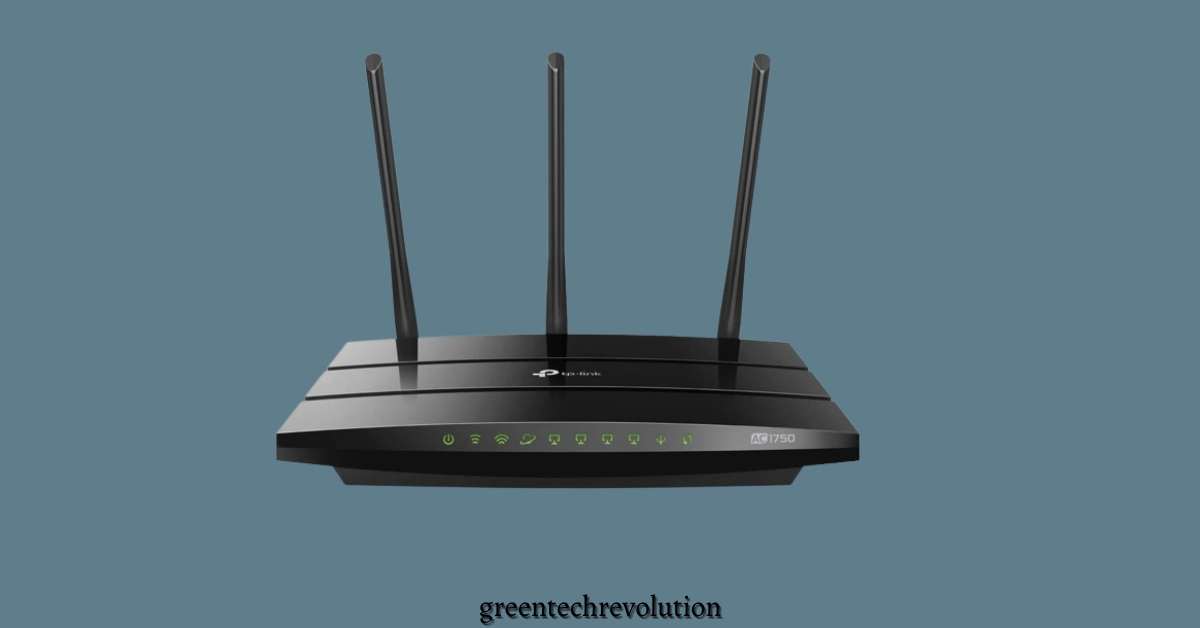



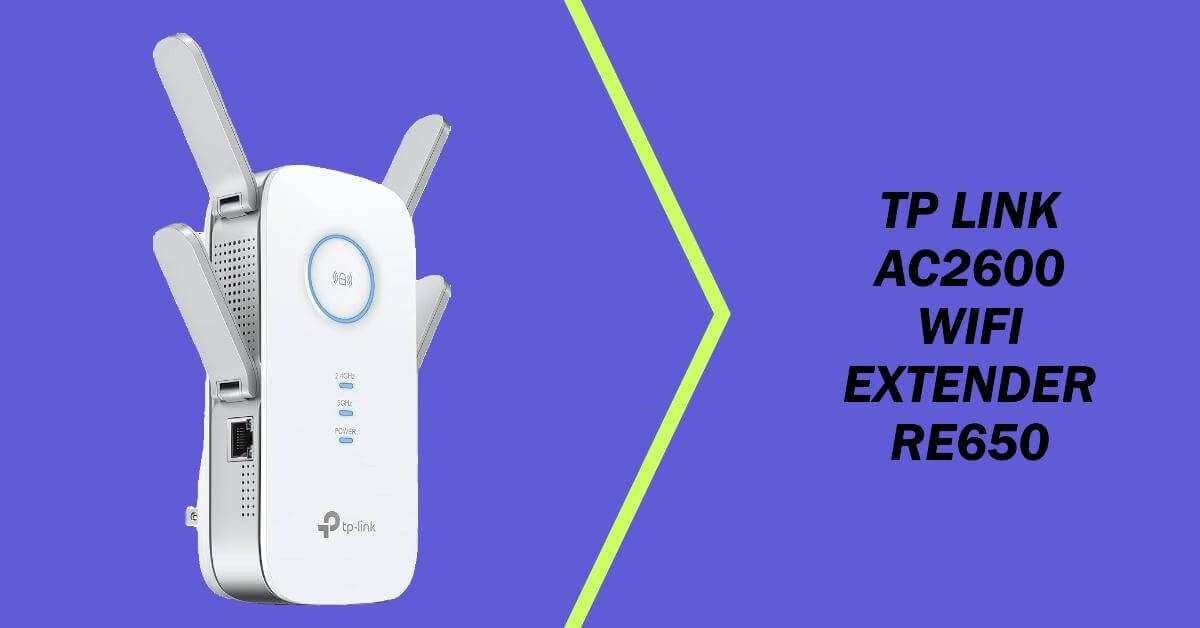
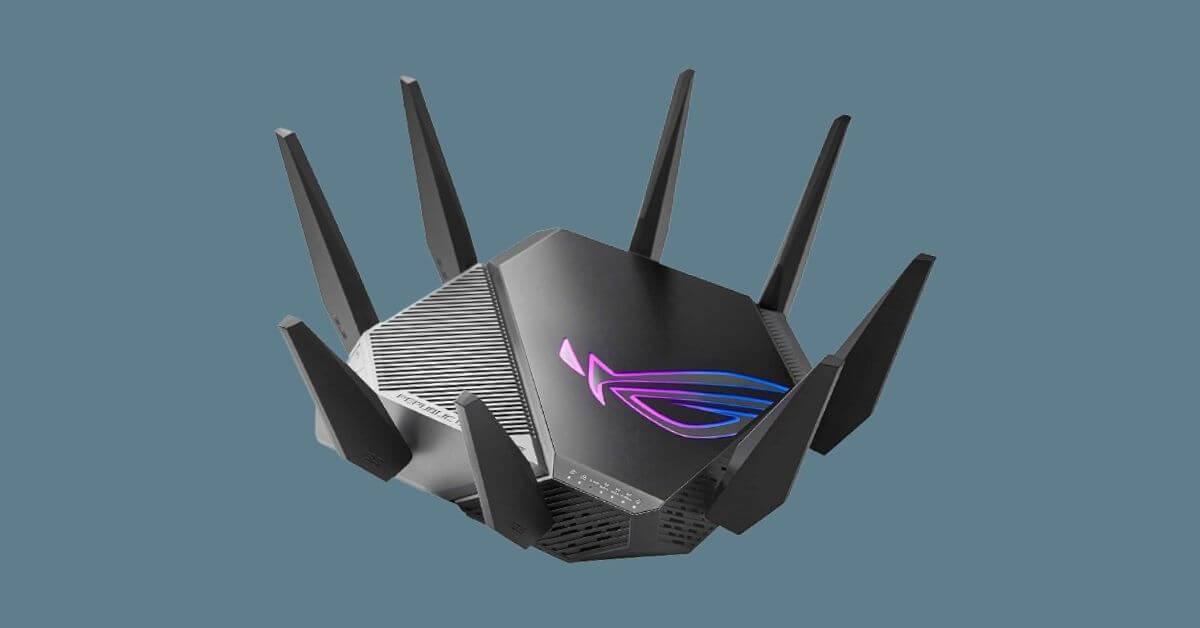
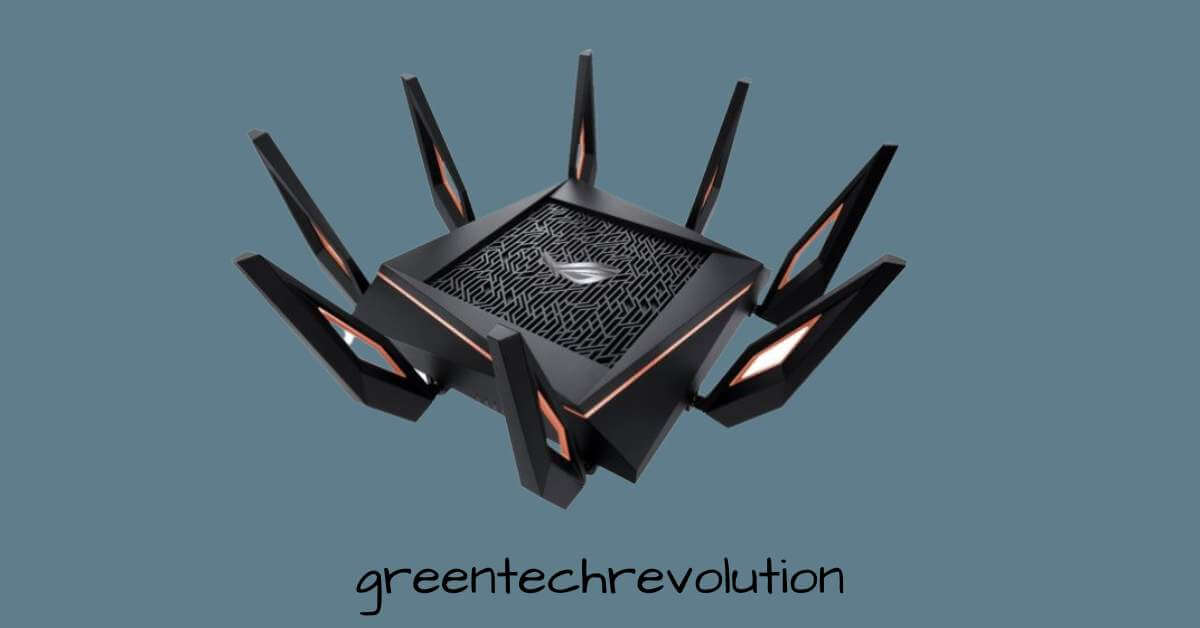
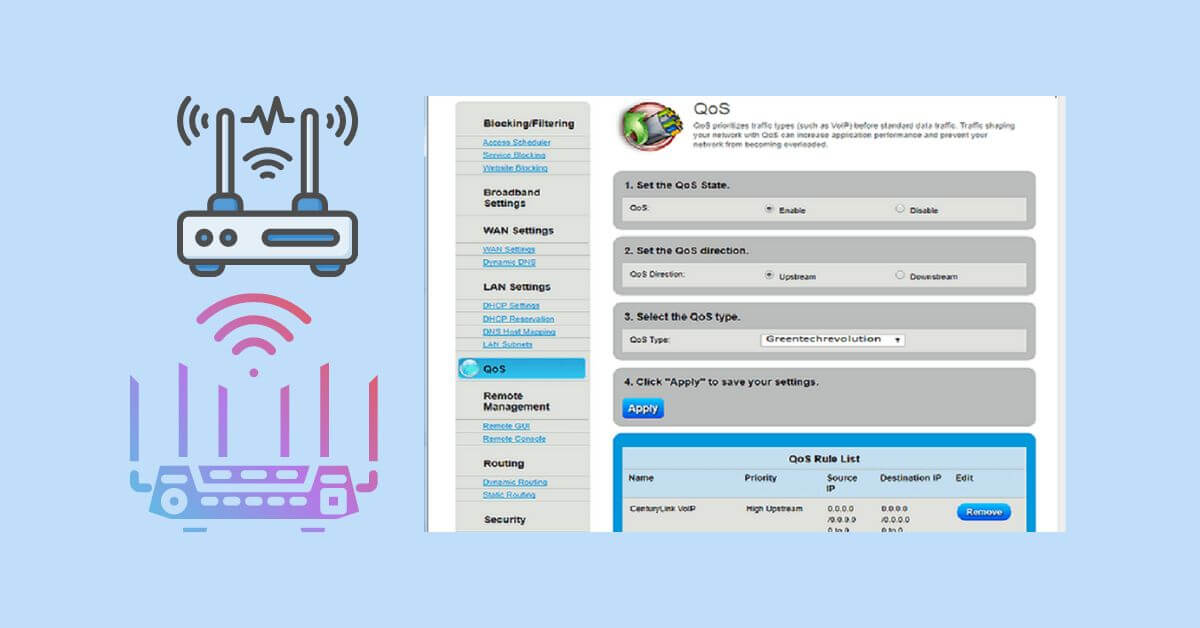
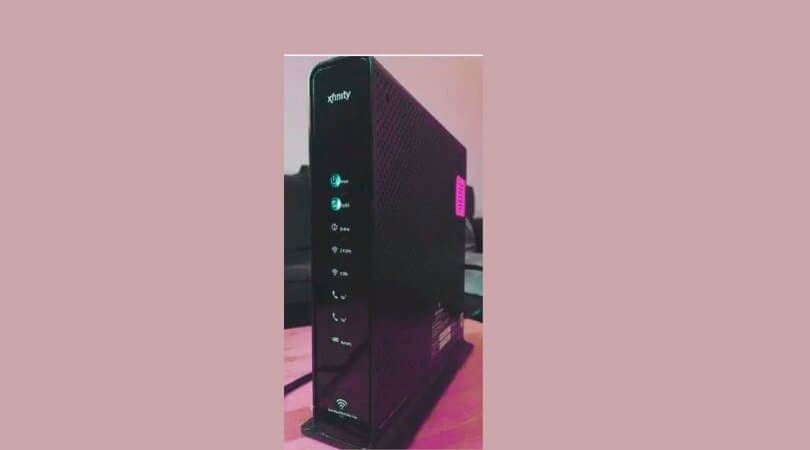
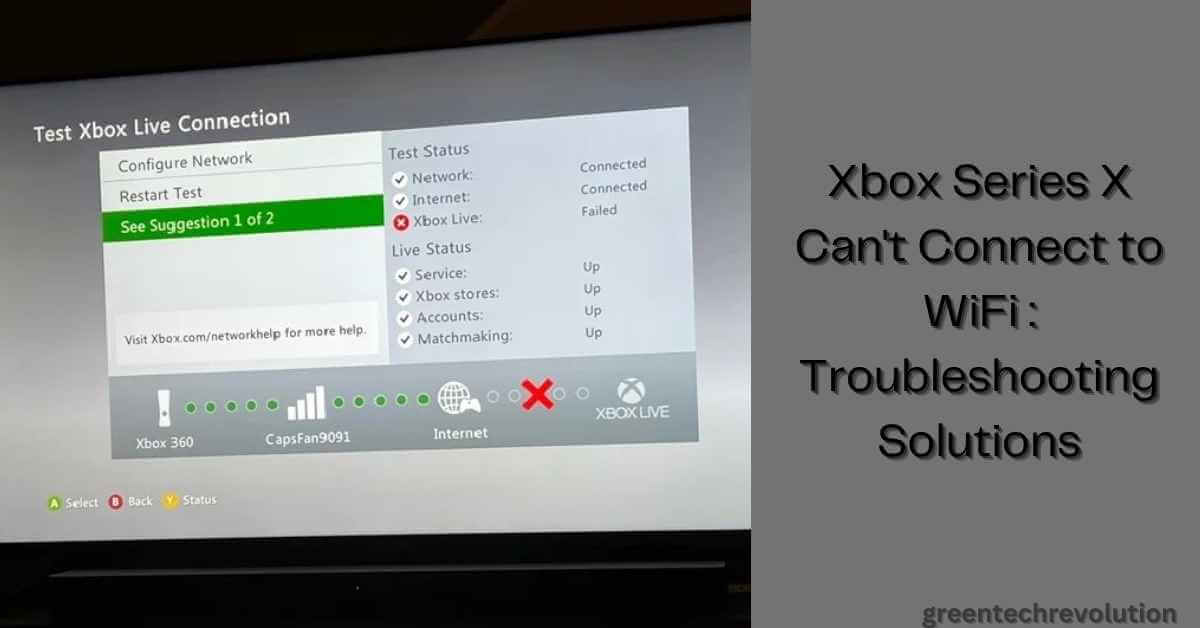
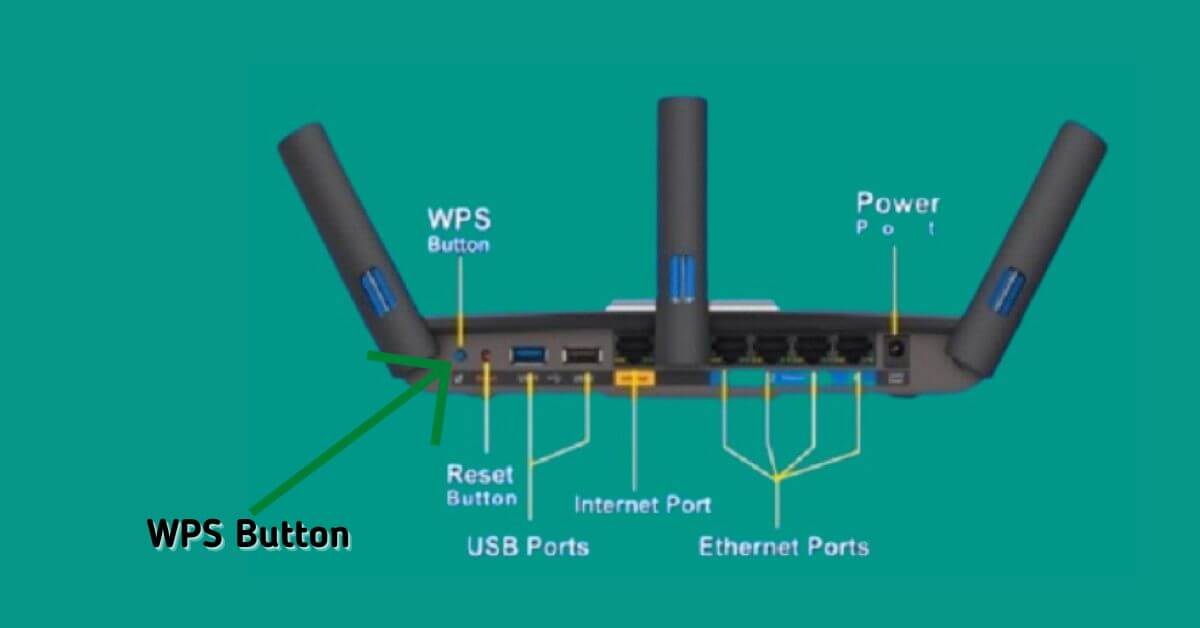
Leave a Reply
You must be logged in to post a comment.